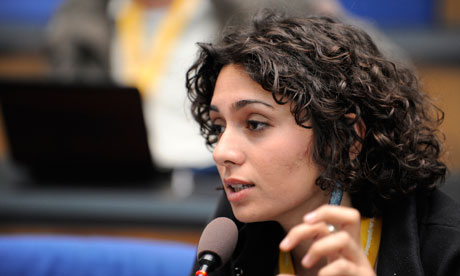An Iranian actress known for her political activism in support of the country's reformists has reportedly been jailed for 18 months. The sentence handed to Pegah Ahangarani, who faced security charges, is another sign of underlying tensions between Iran's hard-line judiciary and calls for greater openness by new President Hassan Rouhani. It comes a day after authorities ordered the closure of the pro-reform Bahar daily newspaper for publishing a commentary considered offensive to Islam by raising questions about the successors of the Prophet Mohammed. But Iranian officials have shown signs of relaxing some laws since the moderate-leaning Mr Rouhani took office in August. These include the freeing of dozens of prisoners held on political charges and the reopening a prominent artistic centre known as the House of Cinema. The case over the 24-year-old actress also points to the internal - and sometimes conflicting - centres of power in Iran. The judiciary is controlled by the country's ruling clerics, headed by Supreme Leader Ayatollah Ali Khamenei. Mr Ali Khamenei has given the green light so far to some of Mr Rouhani's main international initiatives, such as contact with Washington despite opposition from some hardline groups. 

But the Ayatollah and his inner circle appear cautious over fast-paced domestic reforms that could further anger Mr Rouhani's opponents. Ahangarani, who has appeared in about 20 films, has been detained twice since the protests in 2009 over the disputed re-election of then President Mahmoud Ahmadinejad, but she was released without charges. Recently, she has been banned from travelling abroad. The Chicago Film Festival is currently showing Ahangarani's latest film, Darband, about a female university student who becomes the roommate of a young woman wrestling with financial problems. The pro-reform Shargh daily quoted Ahangarani's mother, Manijeh Hekmat, as saying the actress has been sentenced to 18 months. She said it is unclear who filed the complaint against Ahangarani, but noted the charges including "action against national security and links to foreign media." Ahangarani can appeal the ruling. In reaction to the verdict, many movie-lovers quickly joined a cyber-campaign urging authorities to reconsider. Shortly after Mr Rouhani's election victory, Ahangarani asked him at a public meeting to appoint a culture minister who would be able to deliver promises on "freedom of thought and expression." She also said "incompetent" officials were the country's "biggest enemy."